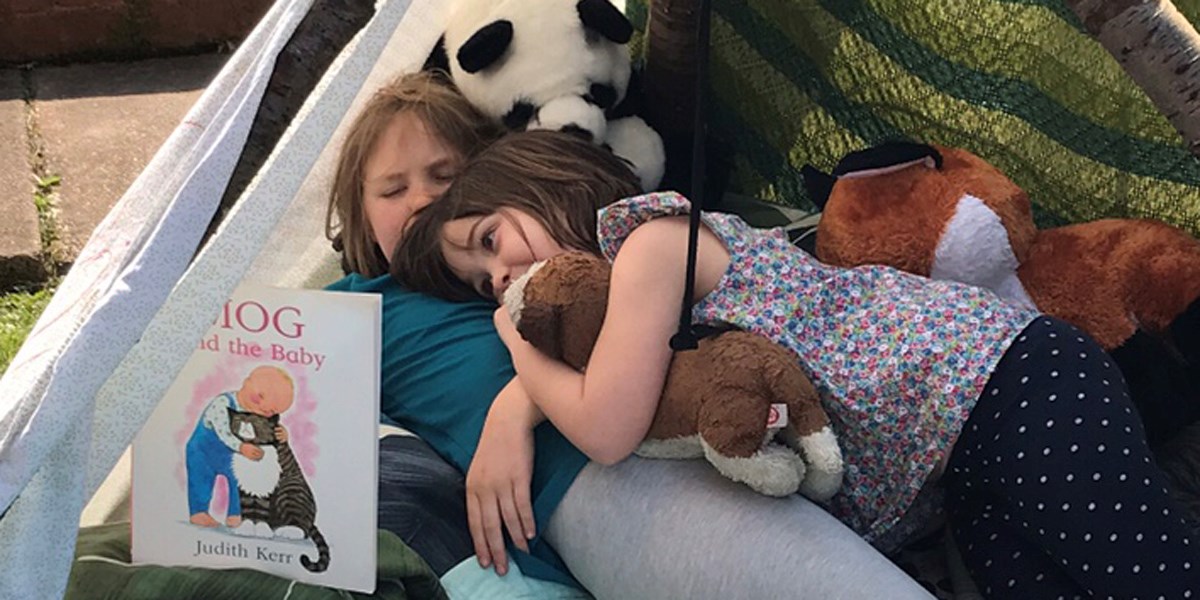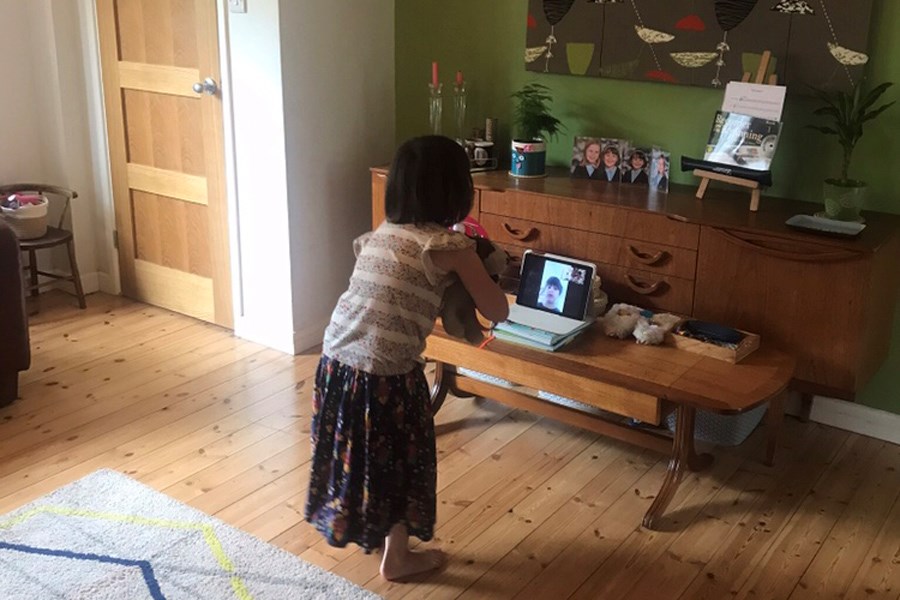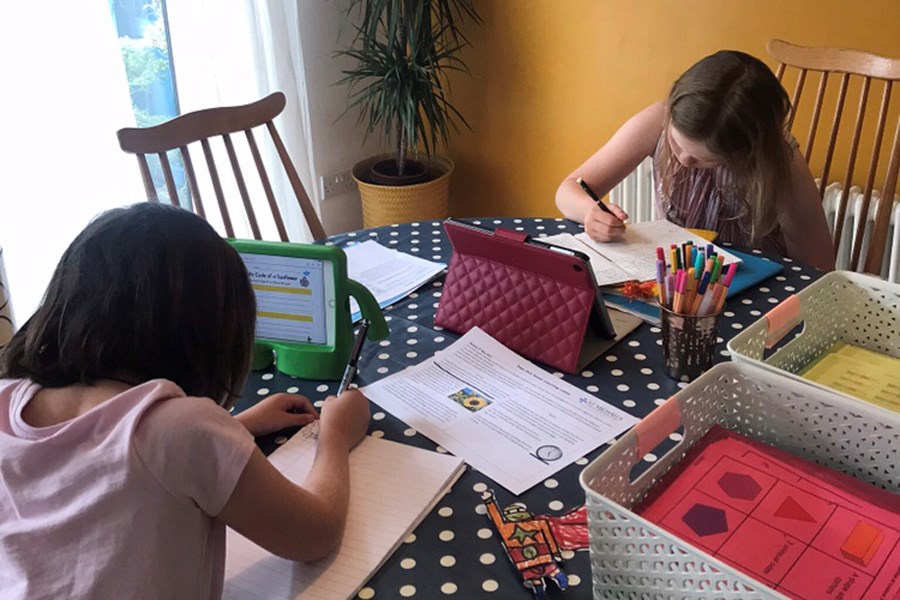Upsetting and dystopian
We live in Exeter in Devon. We moved from east London five years ago. We have two children aged 6 and 9.
We live in a three bedroom semi-detached property close to the city centre, dating from 1975. Although it was in a dilapidated state when we bought it, we liked the light and the good sized garden.
We have nearly finished renovations but our plans for new doors and windows have been put on hold this year.

One of the many dens built in the garden by Harriet and Mary
In what ways has the coronavirus pandemic changed the way you use your home?
Our home has had to become all things to all people.
My husband who works in the NHS needs it to be a retreat and a place of calm and relaxation.
The girls need it to be a school and a place of play and creativity. I need it to be an office for me and a place of safety, nurture and nourishment for the whole family.
Our communication with our extended family and friends is through little screens; this keeps the connection and we have got used to it but if I think about this aspect too much I find it very upsetting and dystopian.
My dad reads the girls a bedtime story over the phone every night.

Mary has a 'play date' with cousin Jude
How do you feel about your home? How have these feelings changed?
I am grateful for the safety of our home everyday. We are all noticing different objects and areas around the house which have new significance and fresh possibilities. The children are constantly making 'dens' and cosy corners. My interpretation is that this gives them a feeling of safety.
Before the pandemic we were considering a move to a larger house but now we have learned to use our space better. We are trying to keep zones for different activities and needs, and get rid of unnecessary clutter and possessions.
How does staying at home affect your relationships?
We are closer as a family. There is no release valve aside from each other. Whereas ordinarily, we might leave home to process feelings we have to all work through them in one place. We have learned to give each other 'space' even within one home, and have created new routines to stay mentally healthy.
What do you appreciate most about your home? What do you find frustrating?
We appreciate the light and aspect. We have a garden and are within walking distance of parks and open spaces. The frustrations are constantly noticing maintenance jobs that need doing and dust and mess from the constant activity.
How has lockdown changed your habits or routines at home?
We all love the lack of a hectic morning routine and school run. We get going gradually but try to start 'school' by 9.30am.
We have learned that by the afternoon everyone needs some time to do their own thing.
We have an early bedtime routine – bath, book and bed – which is what the girls had when they were toddlers but they seem to need that again now. The only time my husband and I have privacy is when they are in bed.

Home school with Harriet and Mary
How is your sense of home affected by your neighbours or those living nearby?
We are all getting to know our neighbours better. Due to the fine weather we are all in our gardens and able to see and hear each other more, day to day. There is a good community spirit and little 'stalls' are appearing in the pavements of things people are giving away while decluttering.
I put out some old DVDs and got a lovely thank you note from someone we didn't know before.
I feel self conscious about the noise the children make because our neighbours don't have children. But really everyone is going to have to accept that it is tough having kids at home during a lockdown and they need to run around screaming sometimes!
Share your experience
Take part as we document home life during the coronavirus pandemic
Read more
More personal stories of home life under lockdown
Donate now
Support us to continue vital collecting and programming to explore what home means now
Keep up to date with all the latest from the Museum
Sign up to our monthly enewsletter for news and stories
